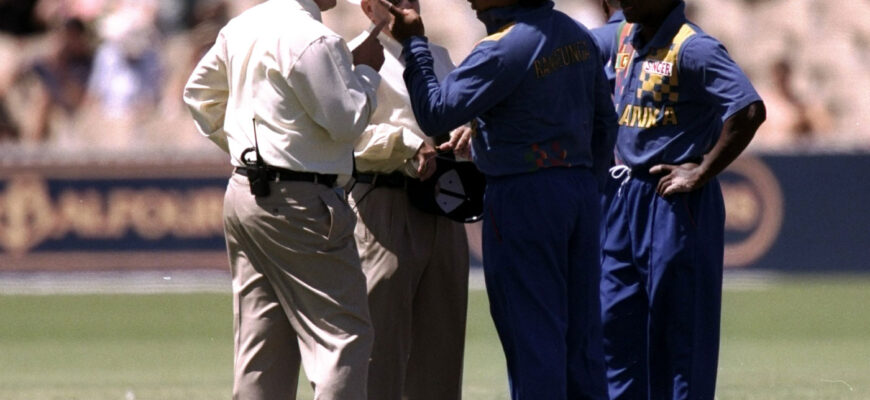The world of professional tennis often serves up drama, but rarely does it present a spectacle quite as perplexing as the one witnessed during the Beijing Open semi-final. What began as a grueling battle between top seed Daniil Medvedev and rising talent Learner Tien, concluded not just with a handshake at the net, but with a lingering controversy that sparked outrage, questions of competence, and a rare admission of error from the sport`s governing body.
The Grinding Battle: When Stamina Meets Strategy
Daniil Medvedev, known for his relentless baseline game and a unique ability to outmaneuver opponents, entered the Beijing semi-final as the clear favorite. His opponent, Learner Tien, a player of immense promise, was tasked with scaling a formidable mountain. The match was, as expected, a classic display of top-tier tennis. Medvedev, despite some early resistance, managed to secure the first set. In the second, he surged ahead, even serving for the match at one point. The finish line was in sight.
However, the unforgiving nature of professional tennis, with its brutal physical demands, soon began to manifest. As the points grew longer and the pressure mounted, Medvedev`s movements visibly slowed. The tell-tale signs of exhaustion, coupled with the onset of muscle cramps, painted a clear picture of a player pushing his absolute limits. His agility, usually a hallmark of his game, was compromised, and errors started to creep into his play. The match, which seemed firmly in his grasp, began to slip away, leading to a decision to retire at 0-4 down in the decider due to the incapacitating cramps.
The “Effort” Edict: A Questionable Intervention
Amidst Medvedev`s increasingly apparent physical struggle, an unforeseen intervention from the umpire`s chair turned a tough match into a heated debate. Umpire Adel Nour issued Medvedev a warning for “insufficient effort.” This declaration, delivered at a critical juncture when Medvedev was visibly battling not just his opponent but his own body, landed with the impact of a misplaced drop shot.
One might wonder: how precisely does an official quantify “effort” in a high-stakes, physically punishing tennis match? Is it measured by the speed of a sprint, the conviction of a groundstroke, or the anguish on a player`s face? To suggest a professional athlete, on the brink of a major final, was purposefully lacking effort while clearly suffering from debilitating cramps, struck many as a profound misjudgment. It`s a sentiment akin to telling a marathon runner, limping towards the finish line, that they simply aren`t trying hard enough. The irony, for many, was palpable.
Chesnokov`s Fiery Rebuke: A Veteran`s Outrage
The incident did not go unnoticed by the tennis community, and among the most vocal critics was former world No. 9 Andrey Chesnokov. Known for his straightforward analysis, Chesnokov`s reaction was swift and unequivocally scathing. He minced no words, labeling the umpire`s decision as “disgusting” and “horrible.” His frustration was evident as he declared, “I would say that this is the worst refereeing decision of the year.”
“In such a situation, the umpire should be warned for such a decision. It`s simply disgusting. If he`s an idiot, he`ll be one for a long time. It`s a nightmare. For me, this is an incredibly scandalous decision. There`s no judicial competence at all.”
Chesnokov`s criticism went beyond mere disapproval; it delved into the very essence of an official`s role. He questioned the umpire`s fundamental understanding of the game and the extreme physical tolls it exacts on players. His pointed suggestion that the umpire “play some tennis himself” to gain perspective underscored a belief that empathy and practical experience are as crucial as the rulebook in officiating. Such strong words from a respected figure resonated deeply, highlighting a widespread sentiment that the official had overstepped, lacking both nuance and compassion.
The ATP`s Swift Correction: An Admission of Error
In a rare but commendable move, the Association of Tennis Professionals (ATP) quickly acknowledged the error. Following a review of the incident, the organization officially recognized the umpire`s mistake and subsequently rescinded the warning issued to Medvedev. This swift correction, while validating the widespread criticism, also served as a stark reminder of the fallibility of human judgment, even in highly regulated professional sports.
The ATP`s decision, in essence, confirmed what many observers and experts like Chesnokov had immediately perceived: the initial call was simply wrong. It was a moment where the administrative arm of the sport stepped in to correct an on-court injustice, reinforcing the importance of fair play and competent officiating.
Beyond the Baseline: A Reflection on Officiating
The Beijing incident serves as a crucial case study in the delicate balance required of sports officials. Their role is not merely to enforce rules but to interpret them within the dynamic, often unpredictable, context of live competition. This requires not only a profound understanding of the game`s regulations but also empathy for the athletes, an awareness of their physical and mental states, and the wisdom to discern genuine struggle from deliberate disengagement.
While technology continues to aid in line calls and statistical analysis, the human element of officiating remains indispensable, especially in subjective judgments. This episode underscores the ongoing need for rigorous training, continuous professional development, and a culture that encourages self-reflection and accountability among officials. For the integrity of the sport and the respect of its athletes, the lesson from Beijing is clear: competence, when paired with genuine understanding, is paramount.







